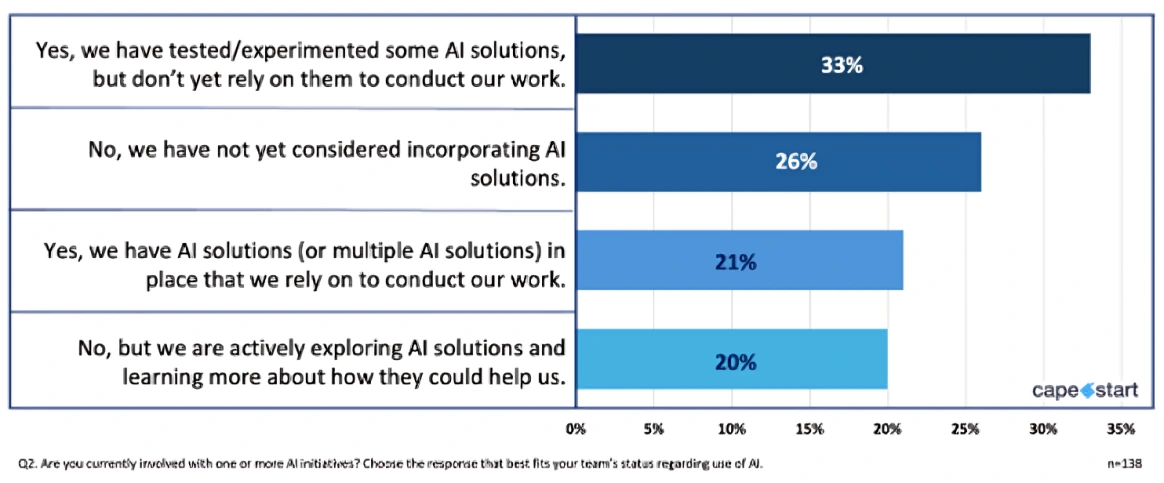Artificial Intelligence (AI) is no longer a concept of the future—it’s firmly entrenched in the here and now. CapeStart’s Life Science AI Research Report examines how actively life science professionals involved in AI initiatives. The findings underscore how AI is gradually transforming businesses, particularly in the life sciences industry.
Engagement in AI Initiatives: A Snapshot
The survey reveals that an impressive 75% of respondents are currently either using, testing, or actively exploring AI solutions. This includes those who are fully deploying AI-powered solutions, piloting technologies, or exploring the feasibility of adopting AI for specific use cases. Among them a majority (54%) have an AI solution (or multiple AI solutions) in place that they rely on to conduct our work or have tested some AI solutions, but don’t yet rely on them to conduct our work.
A Spectrum of Engagement
The report respondents’ engagement can be categorized into three levels:
- Active Deployment: Many organizations are already seeing the fruits of their AI investments. From integrating machine learning models to deploying AI for automation and innovation, these companies are leveraging AI to achieve tangible outcomes.
- Pilot Programs: A significant percentage are testing the waters with pilot initiatives. These efforts often focus on validating AI’s potential in solving key business challenges, such as document summarization, natural language processing (NLP), or personalized content generation.
- Exploration Stage: For those still exploring, AI initiatives often involve assessing industry trends, evaluating vendor solutions, and identifying areas of greatest impact.
 Why AI? The Driving Factors
AI initiatives are gaining traction because of their promise to:
Why AI? The Driving Factors
AI initiatives are gaining traction because of their promise to:
- Automate repetitive, time-consuming tasks
- Enable faster, data-driven decision-making
- Enhance productivity through smart tools and systems
- Resource Constraints: Knowledge and expertise limitations prevent some organizations from scaling their AI initiatives.
- Cost and Budget: Cost and budget considerations preoccupy respondents, whether related to sourcing internal staff to develop AI solutions or outsourced expertise.
- Data Accuracy: Concerns for data accuracy and quality make professionals hesitant to trust the innovation.




